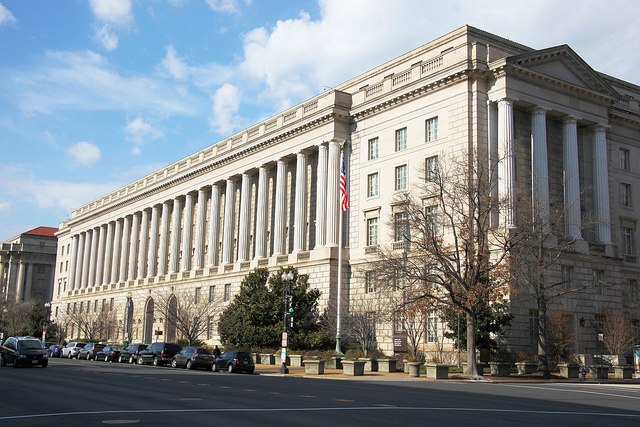
The Internal Revenue Service is an agency that is long overdue for modernization and reform. It has been two decades since the agency faced significant reform, when Congress passed the IRS Reform and Restructuring Act of 1998 (RRA). Since then, the IRS has been plagued with mismanagement and has struggled to adapt to the modern digital age.
This week, the House of Representatives will vote on a number of bills that update the IRS. One of the most significant bills is H.R. 5444, the “Taxpayer First Act,” sponsored by Ways and Means Oversight Subcommittee Chair Lynn Jenkins (R-KS).
This legislation implements several necessary IRS reforms that would improve the efficiency of the agency, ensure taxpayers are protected from the agency, and ensure that Americans can more easily comply with the tax code.
Ensuring Americans Can Comply with the Tax Code
For many American families, filing taxes is a time consuming and overly complex process. Recent estimates of tax complexity have found that families and businesses spend more than 8.9 billion hours and $400 billion complying with the code every year.
One way these problems are mitigated is through the Free File Program, a public-private partnership available that has served more than 40 million taxpayers and saved $1.3 billion in preparation costs since its inception. The program offers 70 percent of taxpayers, or those making with less than $66,000 in adjusted gross income, access to electronic filing software provided by leading private companies free of charge.
H.R. 5444 expands and strengthens Free File by making the program permanent and requiring the IRS to work with state governments in order to ensure the program is available at the state level and promotes simplicity and efficiency. The legislation also requires the IRS to work with the private sector to design new programs that make it easier for taxpayers to complete and file their tax returns.
Implementing Taxpayer Protections from the IRS
The Taxpayer First Act implements several reforms to protect taxpayers from the IRS in the case of an audit.
First, the legislation increases the protection over confidential taxpayer data by prohibiting the IRS from outsourcing taxpayer information to outside contractors unless necessary for expert evaluation of the information at hand.
Second, H.R. 5444 also safeguards the designated summons process against abuse by requiring the IRS to disclose a documented history of reasonable requests of information from the taxpayer to the head of the relevant operating division and its division counsel.
Third, H.R. 5444 improves enforcement of tax laws in several different ways, the first being adjustments to structuring laws. Under present law, banks are required to report currency transactions exceeding $10,000 to the IRS. This proposal would require the IRS to issue a 30-day notice to the owner of any seized assets to inform him of his rights in any post-seizure hearings.
Lastly, H.R. 5444 makes adjustments to notice of contact of third parties. The new bill requires that the IRS to give taxpayers a 45 day notice before contacting a third party to collect taxpayer liabilities.
While more remains to be done, these reforms move in the right direction toward ensuring taxpayers are protected from IRS overreach. One of the most egregious examples of IRS abuse in recent memory is when the agency broke federal law to hire a Democrat white-shoe law firm to audit Microsoft. Quinn Emmanuel’s services, which cost taxpayers $1,000 an hour, could have easily been performed by the IRS’s 40,000 in-house enforcement officers. The IRS’s decision to hire an outside law firm to audit Microsoft calls the agency’s judgment into question as well as its use of limited resources.
Reforms that safeguard the American people against abuse from IRS career bureaucrats is long overdue. The Taxpayer First Act is an excellent first step in reforming and modernizing the troubled agency and should be supported by all members of Congress.

